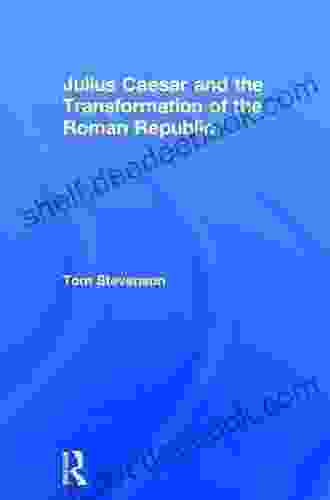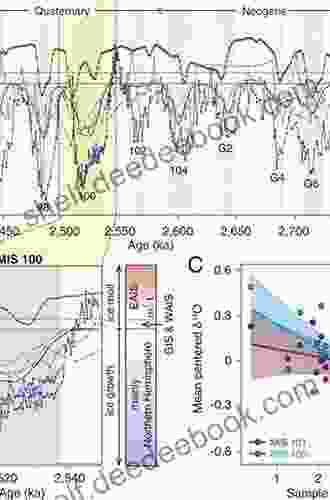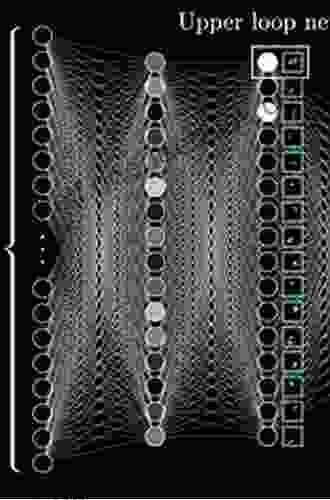Julius Caesar and the Transformation of the Roman Republic

5 out of 5
| Language | : | English |
| File size | : | 1755 KB |
| Text-to-Speech | : | Enabled |
| Screen Reader | : | Supported |
| Enhanced typesetting | : | Enabled |
| Word Wise | : | Enabled |
| Print length | : | 210 pages |
Julius Caesar, one of the most celebrated and controversial figures in human history, played a pivotal role in the transformation of the Roman Republic into the Roman Empire. His military campaigns, political machinations, and personal charisma left an indelible mark on the course of Western civilization. This article examines the life, career, and legacy of Julius Caesar, exploring his impact on Roman history and the enduring significance of his contributions.
Early Life and Military Career
Gaius Julius Caesar was born in Rome on July 13, 100 BC. He came from a wealthy patrician family, and his early life was marked by political turmoil and civil war. Caesar's father died when he was 16, and his mother, Aurelia, raised him. He received a traditional Roman education, studying literature, philosophy, and rhetoric.
At the age of 17, Caesar began his military career. He served under his uncle, Gaius Marius, in the Social War. His military talents were quickly recognized, and he rose through the ranks. In 69 BC, Caesar was elected military tribune. In 61 BC, he served as governor of Hispania Ulterior (modern-day southern Spain).
Gallic Wars
In 58 BC, Caesar was appointed governor of Gallia Cisalpina (modern-day northern Italy) and Gallia Transalpina (modern-day southeastern France). He immediately launched a series of military campaigns against the Gallic tribes. The Gallic Wars lasted for eight years and saw Caesar conquer a vast territory that extended from the Pyrenees to the Rhine.
Caesar's military campaigns in Gaul were a testament to his military genius. He was a brilliant strategist and tactician, and he used his legions to great effect. He also possessed a keen understanding of Gallic politics and culture, which he used to his advantage.
Civil War
In 49 BC, Caesar returned to Italy with his legions. He crossed the Rubicon River, which marked the boundary between Gaul and Italy, and marched on Rome. This act was considered treason by the Senate, and it sparked a civil war.
Caesar's opponents, led by Pompey the Great, were a formidable force. However, Caesar's military skills and the loyalty of his legions proved too much for them. Caesar defeated Pompey at the Battle of Pharsalus in 48 BC, and Pompey fled to Egypt, where he was assassinated.
After his victory at Pharsalus, Caesar pursued Pompey's supporters to North Africa and Spain, where he defeated them in a series of battles. In 46 BC, Caesar returned to Rome as a victor. He was appointed dictator for ten years, and he began to implement a series of reforms that transformed the Roman Republic.
Dictatorship and Assassination
Caesar's dictatorship was marked by a number of reforms. He reformed the calendar, created new colonies, and reorganized the government. He also granted citizenship to many provincials, and he improved the lives of the poor.
However, Caesar's reforms were not without their critics. Many Romans feared that he was becoming too powerful, and they plotted to assassinate him. On March 15, 44 BC, Caesar was murdered by a group of senators led by Marcus Junius Brutus and Gaius Cassius Longinus.
Caesar's assassination plunged Rome into a new civil war. His supporters, led by Mark Antony and Octavian, fought against the assassins. In 43 BC, Antony, Octavian, and Lepidus formed the Second Triumvirate. They defeated the assassins at the Battle of Mutina in 43 BC and the Battle of Philippi in 42 BC.
Legacy
Julius Caesar's legacy is complex and controversial. He was a brilliant military commander, a shrewd politician, and a charismatic leader. However, he was also ambitious and ruthless. His actions led to the end of the Roman Republic and the establishment of the Roman Empire.
Caesar's legacy is still debated today. Some historians view him as a tyrant who destroyed the Republic. Others see him as a great leader who saved Rome from chaos and civil war. Regardless of one's interpretation, there is no doubt that Julius Caesar was one of the most important figures in human history.
Julius Caesar played a pivotal role in the transformation of the Roman Republic into the Roman Empire. His military campaigns, political machinations, and personal charisma left an indelible mark on the course of Western civilization. His legacy is complex and controversial, but there is no doubt that he was one of the most important figures in human history.
5 out of 5
| Language | : | English |
| File size | : | 1755 KB |
| Text-to-Speech | : | Enabled |
| Screen Reader | : | Supported |
| Enhanced typesetting | : | Enabled |
| Word Wise | : | Enabled |
| Print length | : | 210 pages |
Do you want to contribute by writing guest posts on this blog?
Please contact us and send us a resume of previous articles that you have written.
 Page
Page Paperback
Paperback Newspaper
Newspaper Paragraph
Paragraph Shelf
Shelf Glossary
Glossary Bibliography
Bibliography Foreword
Foreword Synopsis
Synopsis Annotation
Annotation Manuscript
Manuscript Scroll
Scroll Classics
Classics Library card
Library card Narrative
Narrative Memoir
Memoir Encyclopedia
Encyclopedia Dictionary
Dictionary Thesaurus
Thesaurus Character
Character Resolution
Resolution Librarian
Librarian Catalog
Catalog Card Catalog
Card Catalog Borrowing
Borrowing Stacks
Stacks Archives
Archives Periodicals
Periodicals Research
Research Scholarly
Scholarly Reserve
Reserve Journals
Journals Reading Room
Reading Room Rare Books
Rare Books Study Group
Study Group Dissertation
Dissertation Storytelling
Storytelling Awards
Awards Book Club
Book Club Theory
Theory William J Steele Iii
William J Steele Iii Jill Wright
Jill Wright William Wheeler
William Wheeler Anne Rice
Anne Rice Luis Angel Echeverria
Luis Angel Echeverria Jack Trout
Jack Trout Howard Jones
Howard Jones Edwin Kim
Edwin Kim Carole Morris
Carole Morris J M Sullivan
J M Sullivan Kimberley Griffiths Little
Kimberley Griffiths Little Martin Hochleithner
Martin Hochleithner Taylor Caldwell
Taylor Caldwell Charles A Mills
Charles A Mills Ian Ker
Ian Ker David Snider
David Snider Julian Sedgwick
Julian Sedgwick Peter Cole
Peter Cole Karen Vinar
Karen Vinar Tim Tyler
Tim Tyler
Light bulbAdvertise smarter! Our strategic ad space ensures maximum exposure. Reserve your spot today!

 Avery SimmonsThe Greek Letters Volume Before Greek Letters Quartet: Exploring the Origins...
Avery SimmonsThe Greek Letters Volume Before Greek Letters Quartet: Exploring the Origins... Gage HayesFollow ·15.7k
Gage HayesFollow ·15.7k Steven HayesFollow ·16k
Steven HayesFollow ·16k Earl WilliamsFollow ·14.8k
Earl WilliamsFollow ·14.8k Jaylen MitchellFollow ·10.5k
Jaylen MitchellFollow ·10.5k Vernon BlairFollow ·15.9k
Vernon BlairFollow ·15.9k Joel MitchellFollow ·3.3k
Joel MitchellFollow ·3.3k James JoyceFollow ·17.2k
James JoyceFollow ·17.2k Graham BlairFollow ·5.8k
Graham BlairFollow ·5.8k
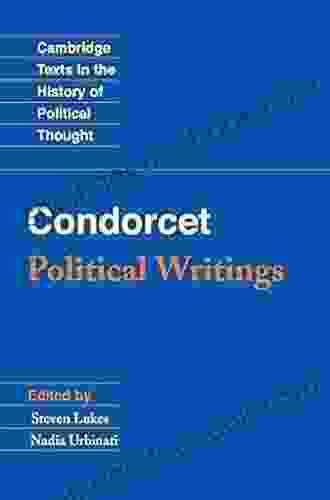
 Beau Carter
Beau CarterLater Political Writings: A Window into the Evolution of...
Political thought, like...

 Tyrone Powell
Tyrone PowellThe Essential Guide to Family School Partnerships:...
: The Importance of...

 Christian Barnes
Christian BarnesAdvancing Folkloristics: Conversations with Jesse...
Dr. Jesse Fivecoate is an...

 Jake Carter
Jake CarterHal Leonard DJ Method Connell Barrett: A Comprehensive...
Are you ready...
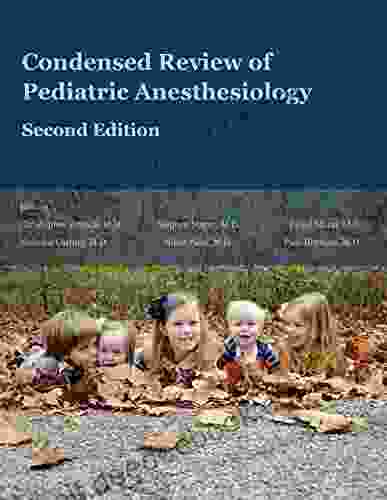
 John Updike
John UpdikeCondensed Review of Pediatric Anesthesiology Second...
Condensed Review of...

 Guillermo Blair
Guillermo BlairExploring the Complexities of Motherhood and Identity: A...
Elena Ferrante's "The Lost...
5 out of 5
| Language | : | English |
| File size | : | 1755 KB |
| Text-to-Speech | : | Enabled |
| Screen Reader | : | Supported |
| Enhanced typesetting | : | Enabled |
| Word Wise | : | Enabled |
| Print length | : | 210 pages |


